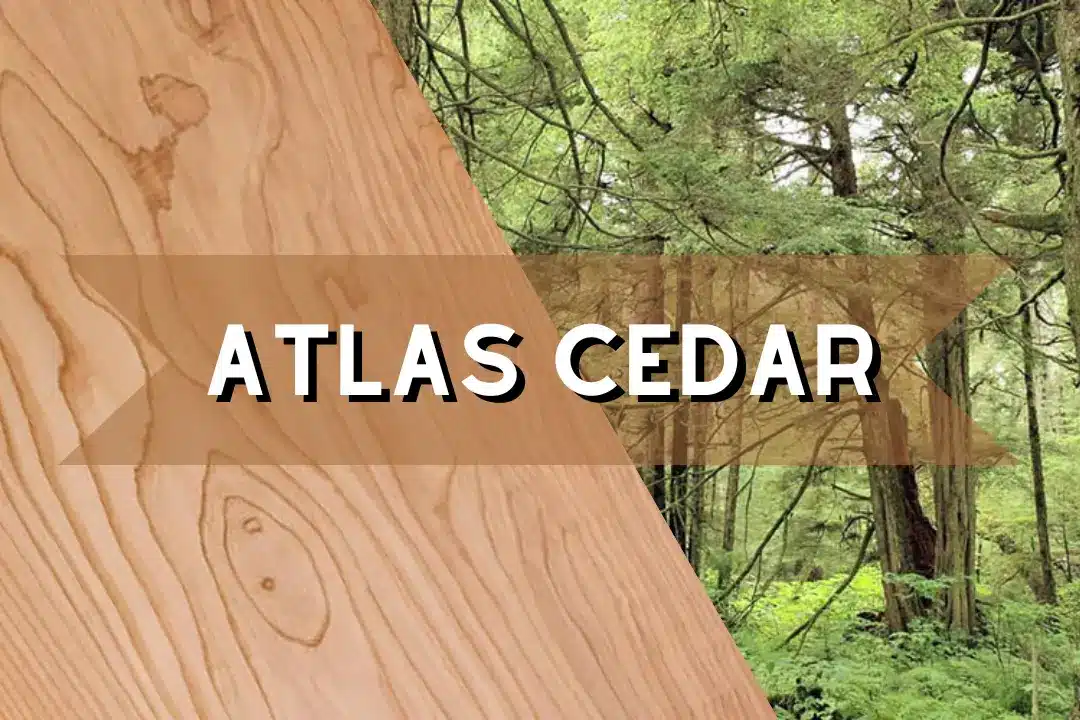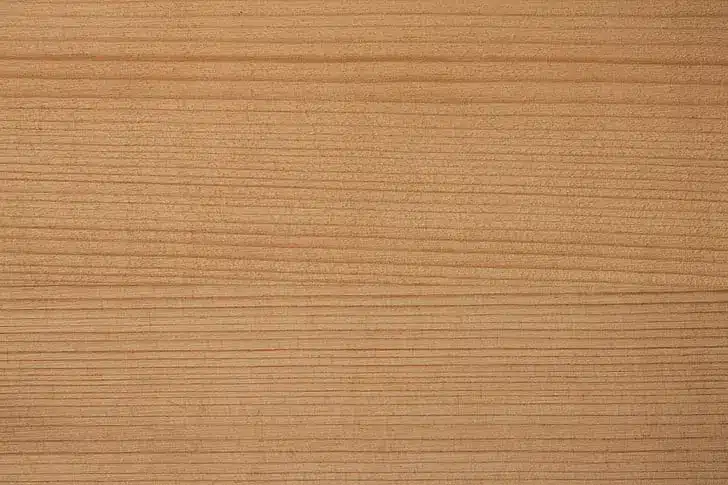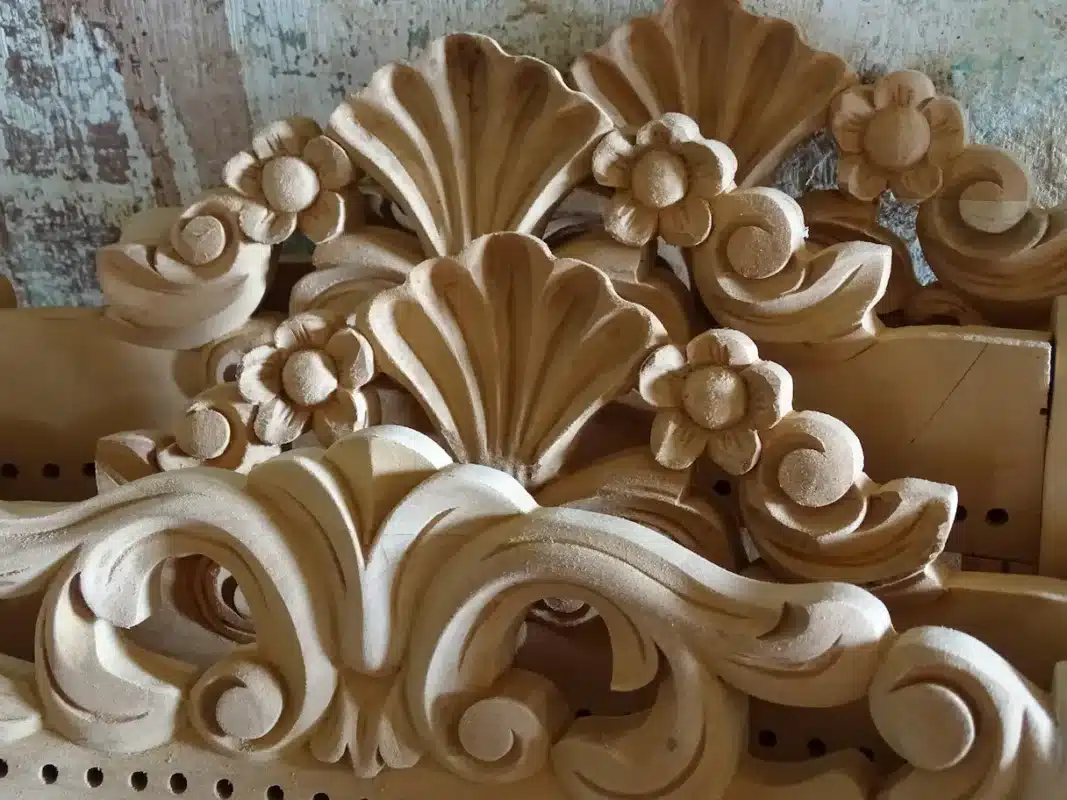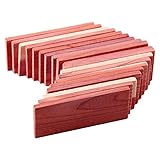
Atlas Cedar Wood: 7 Jaw-Dropping Facts

Did you know the Atlas Cedar, known as Cedrus atlantica, is special? It’s not just for its beauty but also its many uses. Atlas cedar wood is durable and looks amazing, making it great for building, cosmetics, and aromatherapy.
This wood is loved for its natural beauty and special qualities. It’s a favorite among builders and artists because of its unique properties.
In this article, we’ll share seven amazing facts about Moroccan Cedar. We’ll look at its history, unique traits, and uses. You’ll learn about cedarwood oil and the blue atlas cedar variety. It’s why Atlantic Cedar has been admired for centuries.
Table of Contents
What is Atlas Cedar?
Atlas cedar, known as Cedrus atlantica, is a stunning tree from the Atlas Mountains in Morocco and Algeria. It can grow up to 40 meters tall. Its bluish-green leaves make it a popular choice for gardens and crafts.
The leaves of the Atlantic Cedar are needle-like and grow in clusters. This gives it a lush look. Its broad, pyramidal shape adds grandeur to any area. The trunk can be as wide as 2 meters, showing its strength.
The Atlas cedar’s reproductive parts are interesting. Male cones are small and finger-like, while female cones are egg-shaped. They turn from purple to brown over two to three years. The cones release seeds with paper-like wings, helping the tree spread.
Despite its beauty, the Atlas cedar is facing big challenges. It’s endangered due to climate change, human activities, and forest fires. There are only about 163,000 hectares of Atlantic Cedar forests left in Morocco. Saving this tree is crucial for the future.
Historical Significance of Atlas Cedar
The history of Atlas Cedar is rich and varied. It shows its importance across many cultures. In ancient Egypt, it was famous for its scent, used in temples and for mummification.
It was not just for religious use. Cedarwood also stood for strength and endurance in the building. It was used for temples and ships.
In ancient Greece, cedarwood’s durability and beauty were valued. It helped build temples and public buildings. This wood symbolized strength in architecture.
The lasting appeal of cedarwood has kept its legacy alive. It has played many roles in different societies.

Atlas cedar’s value has been recognized across civilizations. Its journey through history shows our connection with nature. It highlights the importance of the resources we use.
| Era | Significance | Uses |
|---|---|---|
| Ancient Egypt | Religious and cultural | Mummification, temple construction |
| Ancient Greece | Endurance and architectural strength | Construction of temples and public buildings |
| Modern Times | Conservation and landscaping | Ornamental trees, sustainable wood products |
Unique Characteristics
Atlas cedar wood, known scientifically as Cedrus atlantica, is highly valued for its unique traits. It stands out for its ability to resist decay and pests, making it perfect for outdoor use. This wood is durable and beautiful, ideal for furniture and building projects.
The properties of cedarwood include a fine and straight grain, which adds to its beauty. Initially, it has a reddish-brown color that turns light golden with age. This aging process adds to its charm, making it great for cabinetry, flooring, and decorations.
Atlas cedar wood is both lightweight and strong, making it easy to work with. It has a pleasant scent due to its natural oils, which also keeps insects away. This makes it appealing and functional at the same time.
Here is a table highlighting some key properties of Mountain Cedar wood:
| Characteristic | Details |
|---|---|
| Height | Up to 40 meters |
| Grain | Fine and straight |
| Initial Color | Reddish-brown |
| Aging Color | Light golden |
| Weight | Lightweight yet strong |
| Resistance | Decays and pests |
| Aromatic Qualities | Natural oils deterring insects |

Benefits of Atlantic Cedar in Construction
Atlas cedar is a top choice for building because of its many benefits. It’s very durable and can handle different weather conditions well. This makes it perfect for outdoor projects.
Durability and Resistance
Mountain Cedar is known for lasting a long time. It doesn’t rot, attract pests, or get damaged by weather. This means less need for repairs and replacements, saving time and money.
Its strength makes it great for both the structure and the looks of a building. Builders can create beautiful and strong buildings with it.
Natural Aesthetics
Atlantic Cedar also looks amazing. It has warm colors and
The Versatility of Atlas Cedar Wood
Atlas cedar wood is incredibly versatile, used in many ways. It’s perfect for making furniture and cabinets. Its fine grain and durability make it a favorite among craftspeople.
Its workability allows for detailed carvings. These carvings show off the skill of the craftsman. They add beauty to any piece.
Atlantic Cedar wood is also known for its scent. This scent makes it great for saunas and wellness areas. It’s also used in musical instruments, improving sound quality.

Cedarwood from atlas cedar trees can grow very tall, over 130 feet. This means there’s plenty of wood for different uses. It’s in high demand, showing its value in today’s world.
Atlas Cedar’s Role in Aromatherapy
Atlas cedarwood is key in aromatherapy because of its unique properties. The essential oil from Cedrus atlantica is highly valued for its scent and health benefits. It helps with relaxation and stress relief.
Essential Oil Extraction
Getting atlas cedar essential oil is a precise process. It takes about 25 grams of plant material to get 28 ml of oil. The tall trees used for this process are over 130 feet high. This makes the extraction both sustainable and effective.
Therapeutic Uses and Benefits
Atlas cedar essential oil is known for its calming effects. It helps reduce stress and anxiety, making you feel calm. It’s used in many health products, like those for cellulite and circulatory issues.
Studies also show it may improve brain function. This makes it popular in wellness routines.
When using essential oils, it’s important to dilute them correctly. Pregnant women and those with sensitive immune systems should use a 1% dilution. Most adults can use a 2% dilution. For stronger effects, you can use higher dilutions. Many enjoy diffusing 4-5 drops in their ultrasonic diffusers for the benefits.
Blue Atlas Cedar: A Unique Variety
The blue atlas cedar stands out with its stunning silvery-blue foliage. It adds a striking visual element to landscapes. It’s one of the unique cedar varieties that thrives in different environments.
This tree grows to be 40 to 60 feet tall and 30 to 40 feet wide. It’s a standout feature in gardens, parks, and public spaces.
It needs consistent sunlight, 6 to 8 hours a day, and well-drained soil. It’s best for USDA hardiness zones 6 to 9 and grows 1 to 2 feet a year. At maturity, it can live up to 150 years, offering beauty and shade for decades.
Its bluish-gray needles are 1 inch long and create a striking contrast. There are cultivars like ‘Argentea’ with silvery-blue needles and ‘Glauca Pendula’ with blue-green foliage. Fertilizing annually in the spring supports its growth.
To keep the blue atlas cedar healthy, water it consistently during the first year. Also, protect it from strong winds to prevent branch damage. It may attract pests like scale insects, but they rarely cause harm.
The blue atlas cedar is more than just a pretty sight. It also contributes to timber production and is durable like atlas cedar wood. Its beauty and practical uses make it a key part of any landscape.
Sustainability and Eco-Friendliness
Atlas cedar is becoming more popular in eco-conscious markets. It’s known as an eco-friendly wood because of how it’s sourced. Sustainable forestry makes sure these trees are harvested without harming the environment.
This approach helps keep biodiversity and lets cedar forests grow back naturally. It’s a win-win for both the trees and the planet.
Atlas cedar doesn’t need many chemicals to fight pests. This makes it a better choice for building and crafting. As more people care about the environment, they want materials like North African Cedar.
How atlas cedar essential oil is made also shows care for the planet. Steam distillation keeps its healing compounds intact. This method fits with the trend towards products that are good for the earth.
| Attribute | Details |
|---|---|
| Natural Resistance | Minimizes need for chemical pesticides. |
| Renewable Resource | Harvested through sustainable forestry practices. |
| Essential Oil Extraction | Steam distillation retains active components. |
| Market Trends | Increasing demand for eco-friendly products. |
| Conservation Status | Requires sustainable harvesting to prevent endangerment. |
Eco-friendly practices are helping atlas cedar stay sustainable. They also make the planet healthier for the future. As people choose greener options, the future looks brighter for our planet.
Commercial Uses of Atlantic Cedar
Cedar of the Atlas Mountains has many uses in different industries. Its strong, pleasant smell makes it a top choice.
Cedarwood products like furniture and cabinets often use atlas cedar. Its beautiful grain and ability to resist rot make it perfect for homes and offices. It’s also great for outdoor projects that need to last long.
In the world of cosmetics, atlas cedar essential oils are used in soaps and perfumes. These oils add a nice scent and health benefits. This makes Atlas Conifer popular in aromatherapy, showing its wide use in business.
The market for cedarwood products stays strong. Atlantic Cedar keeps bugs away, making it a natural choice for pest control. It’s also becoming more popular in health products, showing its value in wellness.
Atlantic Cedar is also key in construction. It adds strength and a welcoming feel to any area. Its beauty and durability make it a great choice for businesses looking to offer quality and sustainability.
Conclusion
Atlas cedar is truly remarkable, with a rich history and many uses today. It’s known for its strength in building, its scent in aromatherapy, and its beauty in gardens and homes. Its lasting quality and eco-friendliness make it a favorite for many.
As we focus more on being green, Atlas Cedar’s importance grows. It’s not just useful; it’s also adaptable to many environments. This means it will keep being a key player in both nature and business.
FAQs
What are the key characteristics of atlas cedar wood?
Cedar of the Atlas Mountains, known as Cedrus atlantica, is durable and resists decay. It has a reddish-brown color that turns light golden with age. Its straight grain and unique patterns make it great for crafting.
How is atlas cedar used in construction?
It’s strong and pest-resistant, perfect for outdoor and indoor projects. North African Cedar adds warmth and beauty to any space.
What makes blue atlas cedar unique?
Blue atlas cedar stands out with its silvery-blue foliage. It’s used for decoration in gardens and parks. It’s as durable as regular Atlantic Cedar but adds a special touch.
Can atlas cedar wood be used in aromatherapy?
Yes, its essential oil is calming and helps with stress. It’s also good for skin and hair.
What are the environmental benefits of using atlas cedar?
Atlas Conifer is eco-friendly if harvested right. It naturally resists pests, so no chemicals are needed. Sustainable harvesting helps ecosystems.
How does the historical significance of atlas cedar influence its use today?
Atlantic Cedar was valued for its scent and strength in ancient times. It was used in temples and ships. Today, it’s still popular for its durability and beauty.
What types of products can be made from atlas cedar wood?
Moroccan Cedar wood is versatile. It’s used for furniture, flooring, and even musical instruments. Its unique qualities make it perfect for many uses.



